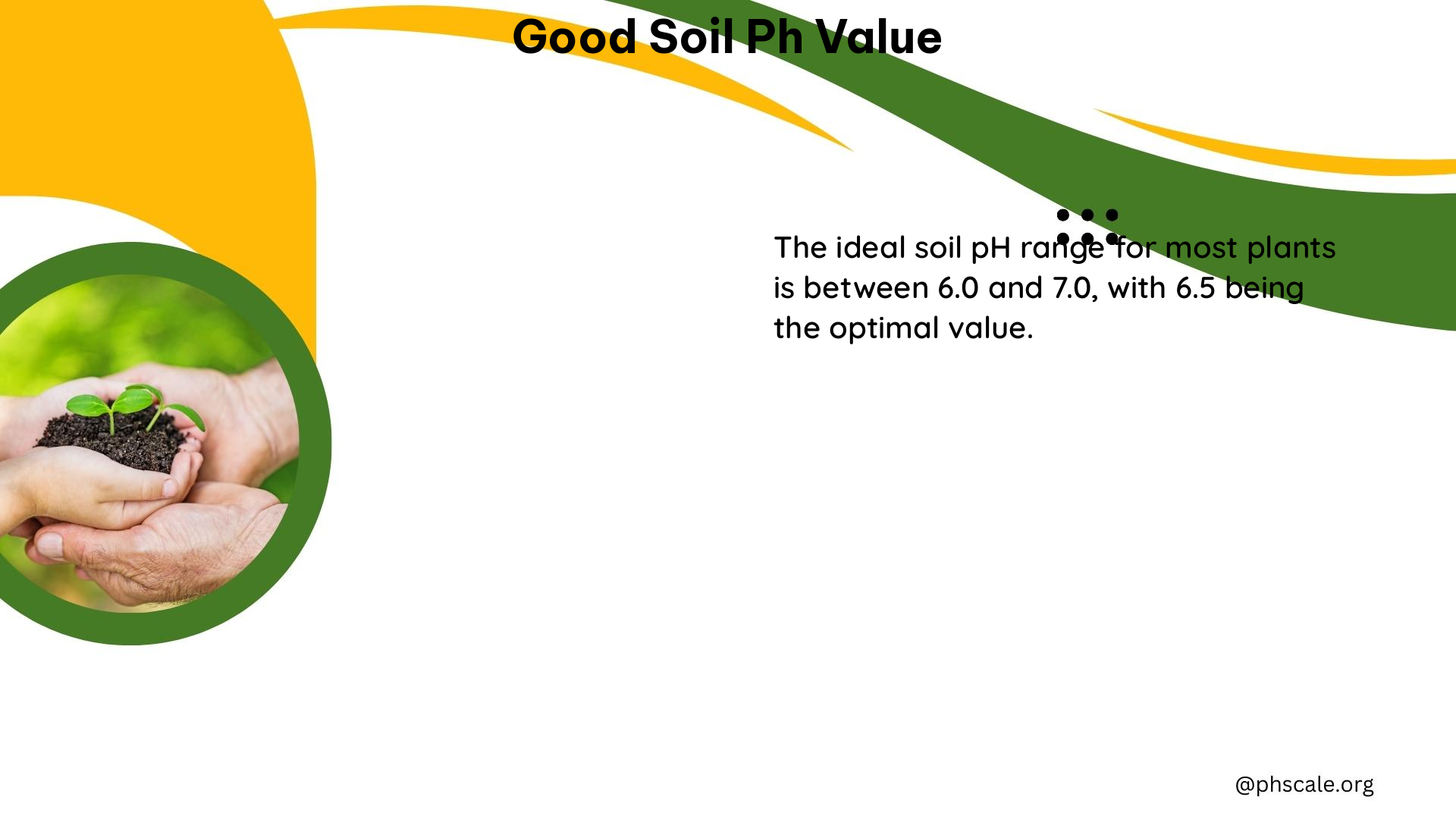A good soil pH value is crucial for ensuring optimal plant growth and nutrient availability. The ideal pH range for most vegetables and ornamental plants is between 6.0 and 7.5, allowing for the best absorption of essential nutrients. Understanding the pH scale, measuring soil pH, and balancing the pH are key factors in maintaining a healthy garden or landscape.
Ideal pH Range
The pH scale ranges from 0 (extremely acidic) to 14 (extremely alkaline), with 7 being neutral. Acidic soils have a pH below 7.0, while alkaline soils have a pH above 7.0. For most plants, the ideal pH range is between 6.0 and 7.5, as this allows for the best availability of essential nutrients.
Nutrient Availability

Soil pH significantly affects the availability of nutrients for plants. In the ideal pH range, most nutrients are more soluble and readily available for plant uptake. However, in highly acidic or alkaline soils, certain nutrients can become less available or even toxic to plants.
| Nutrient | Optimal pH Range |
|---|---|
| Nitrogen (N) | 6.0 – 7.5 |
| Phosphorus (P) | 6.0 – 7.5 |
| Potassium (K) | 6.0 – 7.5 |
| Calcium (Ca) | 6.0 – 7.5 |
| Magnesium (Mg) | 6.0 – 7.5 |
| Iron (Fe) | 5.5 – 6.5 |
| Boron (B) | 5.0 – 7.0 |
Measuring Soil pH
Soil pH can be measured using various methods, including pH meters, pH test strips, and soil testing kits. pH meters provide the most accurate readings, while test strips and kits offer a more affordable and accessible option for home gardeners.
Balancing Soil pH
To balance soil pH, you can use the following methods:
- Lime Application: Adding lime (calcium carbonate) can raise the pH of acidic soils.
- Acidifying Agents: Materials like aluminum sulfate and sulfur can lower the pH of alkaline soils.
It’s important to use these amendments carefully and based on soil test results to avoid over-correcting the pH.
Common Contaminants and Chemicals
Soils can contain various contaminants and chemicals that affect pH and plant growth, such as heavy metals, pesticides, herbicides, and industrial chemicals. These can significantly alter the soil pH and should be addressed through proper soil testing and remediation.
Home Remedies and Alternatives
In addition to commercial amendments, there are several home remedies and alternatives for balancing soil pH, including:
- Composting: Adding organic matter like compost can help neutralize soil pH.
- Manure and Mulch: Using natural materials like manure and mulch can help adjust soil pH.
- Natural Fertilizers: Using natural fertilizers like fish emulsion and bone meal can provide nutrients without altering soil pH.
Conclusion
Maintaining a good soil pH value is essential for the health and growth of your plants. By understanding the ideal pH range, measuring soil pH, and using appropriate methods to balance the pH, you can create a thriving garden or landscape that maximizes nutrient availability and supports the overall well-being of your plants.
